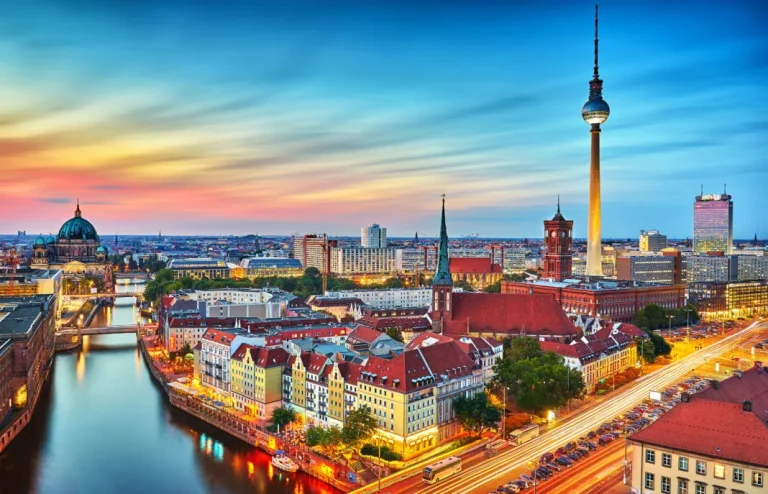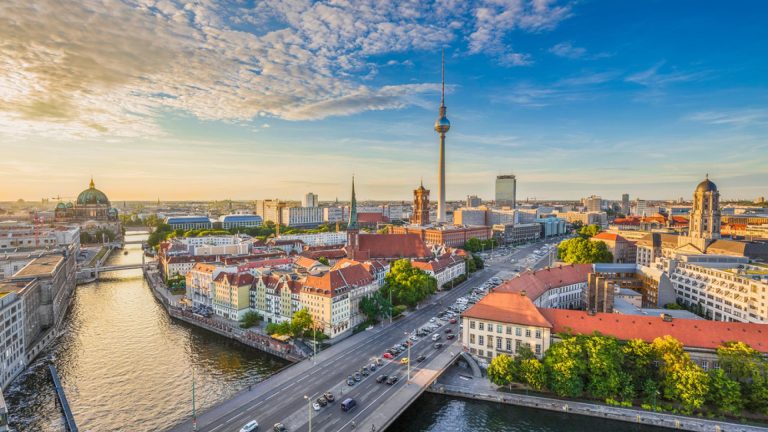Germany is renowned for its advanced healthcare system and state-of-the-art medical facilities, making it a sought-after destination for medical treatment. If you are a Nigerian resident seeking medical care in Germany, you will need to apply for a German medical visa. This guide will walk you through the detailed process of applying for a medical visa from Nigeria, ensuring that you have all the information you need for a successful application.
Why Seek Medical Treatment In Germany?
Germany is recognized globally for its high standard of medical care and cutting-edge technology in medical treatments. The country has numerous specialized hospitals and medical centers that offer comprehensive healthcare services. Patients often seek treatment in Germany for the following reasons:
- High-Quality Healthcare: German hospitals are equipped with the latest technology and staffed by highly trained medical professionals.
- Advanced Treatments: Germany offers advanced treatments and therapies that may not be available in other countries.
- Comprehensive Care: From diagnostics to rehabilitation, German healthcare facilities provide a wide range of services under one roof.
- Efficiency: The German healthcare system is known for its efficiency and patient-centered approach.
STEP BY STEP GUIDE TO APPLYING FOR A GERMAN MEDICAL VISA
Step 1: Secure Medical Treatment in Germany
Before you can apply for a medical visa, you must have an appointment or treatment plan confirmed with a German hospital or medical facility. This typically involves:
- Initial Contact: Reach out to the hospital or medical center to discuss your medical condition and the treatment you require.
- Medical Records: Provide your medical records and any relevant documentation from your doctors in Nigeria.
- Treatment Plan: The German medical facility will review your case and provide a treatment plan, including the estimated cost and duration of treatment.
- Confirmation Letter: Obtain a letter from the German hospital confirming your appointment and detailing the treatment plan.
Step 2: Gather Required Documents
To apply for a German medical visa, you will need to collect several essential documents. These documents must be accurate and up to date to avoid any delays in your application process. Here is a detailed list of the required documents:
1. Valid Passport:
- Ensure your passport is valid for at least three months beyond your planned date of departure from Germany.
- Your passport must have at least two blank pages for visa stamps.
2. Visa Application Form:
- Complete the visa application form, which you can download from the German Embassy’s website. Ensure all information is filled out accurately.
- Sign the completed form.
3. Passport Photos:
- Provide two recent passport-sized photos that meet the German visa photo requirements. The photos should be in color, taken against a light background, and show a full-face view.
4. Proof of Medical Treatment Appointment:
- A letter from the German hospital or medical center confirming your appointment and the type of treatment you will undergo.
- This letter should include details about your medical condition, the treatment plan, and the estimated duration and cost of the treatment.
6. Medical Records:
- Provide your medical records from your Nigerian doctor, including any relevant test results and a letter explaining your medical condition and why you need treatment in Germany.
7. Proof of Financial Means:
- Evidence that you can cover the costs of the medical treatment and your stay in Germany. This can include:
- Recent bank statements (last three months) showing sufficient funds.
- A formal obligation letter (Verpflichtungserklärung) from a sponsor in Germany if applicable.
- Proof of advance payment for the treatment if required by the German hospital
Key Components of a Verpflichtungserklärung(Commitment Declaration)
1. Sponsor’s Details:
- Full name
- Address
- Date of birth
- Nationality
- Passport or ID card details
- Contact information
2. Applicant’s Details:
- Full name
- Date of birth
- Nationality
- Passport number
- Relationship to the sponsor (if any)
3. Duration and Purpose of Stay:
- The purpose of the visit (e.g., medical treatment, family visit, tourism)
- The intended duration of stay in Germany
4. Financial Commitments:
- A declaration that the sponsor will cover all expenses related to the applicant’s stay
- This includes accommodation, living expenses, medical costs, and potential repatriation costs
Requirements For a Sponsor
To act as a sponsor and provide a Verpflichtungserklärung, the individual must meet certain requirements:
1. Residency Status:
- The sponsor must be a legal resident of Germany. This can include German citizens, EU/EEA nationals, or third-country nationals with valid residence permits.
2. Financial Stability:
- The sponsor must demonstrate financial capability to cover the expenses of the applicant. This typically involves providing proof of income, such as salary slips, bank statements, or tax returns.
3. Personal Information:
- The sponsor must provide valid identification, such as a passport or ID card.
Application Process for a Verpflichtungserklärung
The process of obtaining a Verpflichtungserklärung involves several steps:
1. Gather Required Documents:
- The sponsor needs to gather necessary documents, including:
- Proof of income (salary slips, bank statements)
- Proof of residence in Germany
- Valid identification (passport or ID card)
- Details of the applicant (passport copy, purpose of visit)
2. Visit the Local Foreigners’ Office (Ausländerbehörde):
- The sponsor must visit their local Ausländerbehörde (Foreigners’ Office) in Germany to submit the application. Some offices may require an appointment, so it’s advisable to check beforehand.
3. Submit Application and Pay Fees:
- At the appointment, the sponsor submits the completed Verpflichtungserklärung form along with all supporting documents.
- There is a processing fee for the application, which varies by location but typically ranges from 25 to 30 euros.
4. Verification and Approval:
- The Foreigners’ Office will review the application and documents. If approved, they will issue the Verpflichtungserklärung.
5.Send the Document to the Applicant:
- Once issued, the sponsor sends the original Verpflichtungserklärung to the applicant in Nigeria. The applicant needs this document for their visa application.
Using the Verpflichtungserklärung for Visa Application
The applicant in Nigeria will use the Verpflichtungserklärung as part of their visa application. Here’s how it fits into the process:
1.Include in Visa Application:
- The applicant includes the original Verpflichtungserklärung in their visa application packet, along with other required documents (passport, visa application form, photos, proof of medical treatment, etc.).
2. Submit to the German Embassy:
- The applicant submits the complete visa application to the German Embassy in Nigeria. The Verpflichtungserklärung helps demonstrate that the applicant has sufficient financial backing for their stay in Germany.
3. Attend Visa Interview:
- During the visa interview, the applicant should be prepared to discuss the details of their planned stay and the support provided by the sponsor.
Obtaining a Verpflichtungserklärung is a crucial step for Nigerian residents seeking a medical visa to Germany. It ensures that the applicant has sufficient financial support for their stay, which is a significant factor in the visa approval process. By following the steps outlined in this guide and ensuring all requirements are met, applicants can improve their chances of a successful visa application. This comprehensive support not only facilitates the visa process but also provides peace of mind, allowing the applicant to focus on their medical treatment and recovery.
7. Travel Health Insurance:
- Proof of travel health insurance that covers medical expenses and repatriation for the entire duration of your stay in Germany.
- The insurance coverage must be at least 30,000 euros.
8. Proof of Accommodation:
- Provide details of where you will stay during your treatment in Germany. This could be confirmation from the hospital if you are staying there or a hotel booking if you will stay elsewhere.
9. Travel Itinerary:
- Include your flight reservations (do not purchase tickets until your visa is approved).
- If traveling by other means, provide detailed travel plans.
10. Visa Fee:
- Proof of payment of the visa application fee, which is typically around 75 euros. Confirm the current fee on the German embassy’s website.
Step 3: Schedule an Appointment
To apply for your visa, you need to schedule an appointment with the German Embassy or Consulate in Nigeria. This can be done online through the embassy’s website. Here’s how to schedule your appointment:
- Visit the German Embassy’s Website: Navigate to the visa section and look for the appointment scheduling system on the German Embassy’s Website .
- Select the Type of Visa: Choose the medical visa category.
- Pick a Date and Time: Select an available date and time for your appointment. It’s advisable to book your appointment well in advance of your planned travel date to allow ample time for processing.
- Confirmation: You will receive a confirmation email with the details of your appointment. Make sure to print this out and bring it with you.
Step 4: Attend the Visa Appointment
On the day of your appointment, you must attend the visa interview at the German Embassy or Consulate. Here’s what to expect:
- Arrive Early: It’s important to arrive on time or a bit early to avoid any delays.
- Bring All Documents: Ensure you have all the required documents, including originals and copies. Missing documents can result in delays or denial of your visa application.
- Interview: Be prepared to answer questions about your medical condition, treatment plan, and financial situation. The consular officer may ask for additional information or clarification.
- Biometrics: You may be required to provide biometrics, such as fingerprints and a photograph, during the appointment.
Step 5: Pay the Visa Fee
During your appointment, you will need to pay the non-refundable visa application fee. The fee is generally around 75 euros but confirm the exact amount and accepted payment methods on the embassy’s website. Ensure you keep the receipt as proof of payment.
Step 6: Wait for Processing
After submitting your application and attending the appointment, you will need to wait for the visa processing time. This can vary but generally takes from a few days to several weeks, depending on the complexity of your case and the embassy’s workload. During this period:
- Check Status: Some embassies provide a way to check the status of your application online.
- Additional Documents: Be prepared to provide additional documents or information if requested by the embassy.
Step 7: Collect Your Visa
Once your visa is approved, you will be notified to collect your passport with the visa sticker. Here’s what you should do:
- Check Visa Details: Carefully check all the details on your visa to ensure they are correct. This includes your name, passport number, visa type, and validity dates.
- Collect Passport: Visit the embassy or consulate to collect your passport as instructed. Bring your receipt and any other documents required for collection.
Important Tips for a Successful Application
- Apply Early: Start the visa application process well in advance of your planned travel date to allow for any potential delays.
- Accurate Information: Ensure all information provided is accurate and consistent across all documents. Inconsistencies can lead to delays or denial.
- Medical Details: Clearly communicate your medical needs and treatment plans to both your Nigerian and German doctors to avoid any misunderstandings.
- Consult the Embassy: For any specific questions or unique circumstances, contact the German Embassy or Consulate in Nigeria directly for guidance.
Contact Information
German Embassy in Abuja:
- Address: 9, Lake Maracaibo Close, Maitama, Abuja
- Phone: +234 (0) 9 220 80 10
- Email: [email protected]
- Website: German Embassy Abuja
German Consulate General in Lagos:
- Address: 15, Walter Carrington Crescent, Victoria Island, Lagos
- Phone: +234 (0) 1 280 99 50
- Email: [email protected]
- Website: German Consulate Lagos
Applying for a German medical visa from Nigeria involves several steps and requires careful preparation. By following this comprehensive guide, you can ensure that you have all the necessary documents and information for a successful application. Germany’s advanced healthcare system and high standard of medical care make it an excellent choice for seeking medical treatment. With proper preparation and attention to detail, you can navigate the visa application process smoothly and focus on your health and recovery.









Leave a Comment